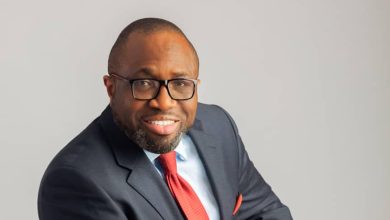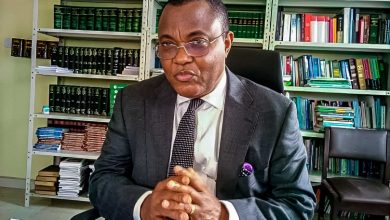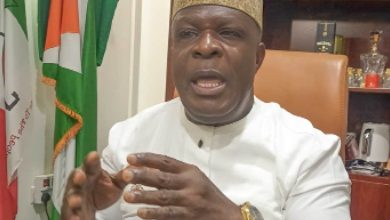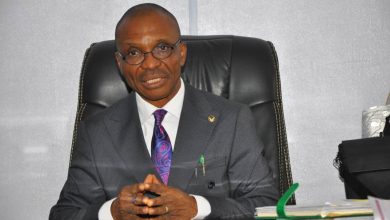Nigeria at 60: Nigerians Have Cause To Regret Where We Are Today
...We've Never Been So Insecure As It's Now
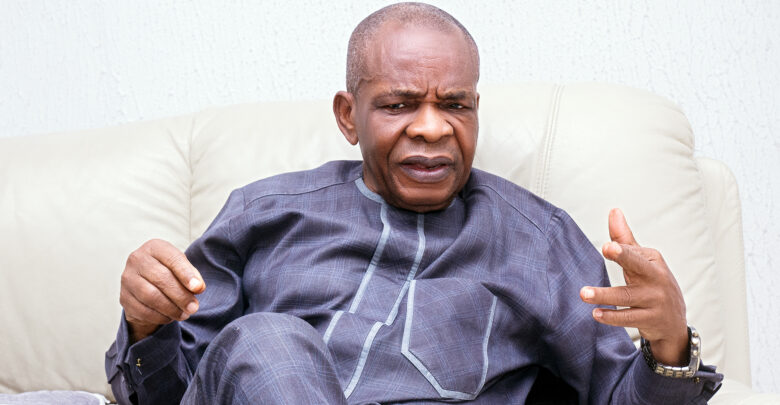
Rt. Hon. (Chief) Nduese Essien, a former member of House of Representatives (1999 to 2007) and former minister of lands, housing and urban development, speaks on Nigeria at 60, Akwa Ibom at 33; the challenges of Nigeria, among other trending issues in this exclusive interview with Crystal Express. Excerpts:
What is your take on the state of Akwa Ibom at 33 years?
Akwa Ibom State has come a long way in the past 33 years, we have been fortunate to have purposeful and focused administrators. Akwa Ibom does not have administrative problems. One of her problems is the issue of succession from one government to another since the inception of democracy in 1999. The tenure of Obong Victor Attah between 1999 and 2007 saw the laying of the major foundation for the growth of the state. He fought for additional revenue to the state through the abrogation of the onshore/offshore oil dichotomy, the creation of the Niger Delta Development Commission and the struggle for resource control. Then came the administration of Chief Godswill Akpabio who spent better part of his tenure settling his differences with his predecessor. After his tenure came Deacon Udom Emmanuel who also had to settle with his predecessor.
These are issues that have affected the growth of the state and we believe in the forthcoming change of baton, we will not have a situation the successor will come to toe a different line with the predecessor. We expect that those who will contest future governorship elections in the state should be people who know the state, people who are prepared to work for the interest of the state and also link up with the predecessors so that there will be smooth transition and continuity.
Akwa Ibom has made progress in infrastructural development, because what we have now could not have come to this part of the country if the state was not created. In health, education and other basic amenities, Akwa Ibom has done well. We could have done better if certain defects were corrected. Some of the defects are: one, in the area of empowerment of people, money is given out as grants and loans and unfortunately they turn out to be non-refundable loan. In business there is nothing like non-refundable loan. When this money is given out the beneficiaries are not monitored to ensure that the so-called empowerment is properly utilized.
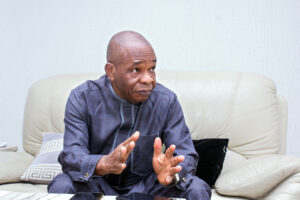
It is expected that with such funds, beneficiaries should be able to establish themselves and employ other people and get out of unemployment queue. Unfortunately since 1999, the same groups of people who have been asking for empowerment are still the ones asking for empowerment till date. In that case we have lost out because the money was not being properly utilized. If you don’t have an empowerment scheme in which beneficiaries after a while become employers of labour, then it is not effective. Again, we have allowed people to imbibe the concept of begging which is an alien culture to Akwa Ibom people.
In the past few years, begging attitude has grown tremendously in the state, even those who have been employed do not concentrate on the job they have been assigned to do but rather present themselves as executive beggers or corporate beggers. A situation you get into offices and find people asking for alms away from the job they were assigned to do.
We will expect that those who are employed should face their employment and allow the professional beggars who should have been fewer in number. However, when employed people turn to begging then the whole state turns to beggarly state. That has to be discouraged so that people can be more focused at work than what is happening today. I also detest a situation where women and youths are taken off from their farms and trading occupation to engage in fanfare for politicians ending up collecting N500 or N1000 a day. We are aware that much money is pushed out for the political fanfare but the agents who are handed the money take a larger chunk and the leaders of the various groups take same leaving peanuts for the rest. That is money misappropriated; it is not helpful in the development of people. When some of these things are corrected, we will become a better organized society, make progress and become stronger than what it is today.
Related: At 33: Reflections On Akwa Ibom Dream
At 33 years Akwa Ibom has contributed immensely through her oil resources to Nigeria, do you think the Federal Government has given the state enough attention development wise?
The Federal Government of Nigeria has been distorted from what it used to be. We were supposed to be a federation but since the emergence of the military into governance, we lost the federal structure because the military is used to unitary system against federal structure. We had expected that after the military rule, Nigeria should have returned to federal structure.
People feel that Nigeria should be restructured to what it is supposed to be; which is a federation. Because of multiplicity of ethnic groups that abound in Nigeria, the continuous use of this unitary structure has deprived a lot of states the money they could have used for their development. Before the advent of the military, the regions were developing at their own pace using whatever resources at their disposal, but now the Federal Government takes all the resources and shares according to its wishes and those who generate the resources are not major beneficiaries as they go more to those who do not produce anything. Akwa Ibom State produces up to 30 per cent of the oil revenue in this country but ends up getting just 13 per cent of the production and the 13 per cent is far inadequate because of the hazards that accompany oil production which have been on for over 50 years.
Therefore, the output from the oil production is not used to compensate the people suffering from the hazards of the job but taken to the federal level and disbursed.
Indiscriminately, Akwa Ibom has a cause to complain and we have been complaining and insisting that the derivation be increased. It is better we return to the federal structure in which each state controls her resources and pays what is agreed to the Federal Government. That is how other federations all over the world are run. I know so well as a former member of the House of Representatives and former minister that there are so many resources available to the Federal Government and this leads to ineffective utilization. When the resources are so much, people always find ways of expending them and some of the ways are not justifiable.
You can see what is happening, the Federal Government of Nigeria believes that people can be given raw cash in the streets and villages to live on and they are doing so presently through the federal minister of humanitarian affairs who goes round with millions to share out to individuals.
Where do you find a government that gives cash to individuals to live on and for how long will they continue to do it and how effective will it be? I believe that they are doing so because there is so much cash accumulated at the federal level and as a means of expending the money; they provide what I call senseless approach to disbursing the money. I haven’t heard of any country giving out cash to citizens to go and live on, against investment.
How long will they be giving this N20,000 to people in a population of 200,000,000 people? I think the Federal Government has deviated in the utilization of the country’s funds and should deploy some of these funds to the state where they would be appropriately utilized.
There are pockets of agitations for additional two states to be created out of Akwa Ibom by some groups, like the Obollo and Annang people, what is your take?
I have seen a publication in that regard and yesterday I also saw that the Annang ethnic group is also asking for a state. I think they are just toying around with the concept of the state creation. We looked at the issue of state creation during the 2014 National Conference which was very comprehensive and it was agreed that it won’t be wise creating more states. It is a known fact that some of the states presently cannot even sustain themselves once allocation is stopped and may readily collapse. We even proposed that rather than creating more states, we should merge some of the existing ones instead of remaining the way they are. I believe the agitation is a reflection that there is so much money at the centre to share out. Therefore, those agitating for states are looking forward to collecting the federal allocation that others are collecting. Akwa Ibom State does not need additional state but if the federal allocations will continue to be shared the way it is presently done, Akwa Ibom should then look for more states.
The Niger Delta Development Commission (NDDC) created about 20 years ago is still enmeshed in alleged fraudulent misappropriations of funds and other vices, what is your impression of the Commission today?
It is most disappointing that NDDC established 20 years ago was so ineffectively run, became so corrupt and a cash cow to politicians. When it was inaugurated, it started off as a focused agency; developed a master plan which has not been followed. Subsequently owing to the appointment of its chief executive, the commission fell into the hands of the Federal Government who in turn started appointing partisan politicians into it. The politicians in turn assembled fund from the agency to pursue their political ambition and unfortunately none of them has ever succeeded. The funds of the agency became dissipated as they are not properly channeled for the intention they were sent for.
The worst scenario came in 2015 when the Federal Government entered the hands of the opposition party and the government in the Niger Delta zone in another party, prompting unnecessary frictions between the state governments in the Niger Delta region and managing directors of the NDDC since their allegiance is to the person who appointed them in the Presidency which is a different party. So there has been distrust and friction between the NDDC managers and the supposed benefiting states and it has further escalated the rate of corruption in the commission.
Therefore the sooner the NDDC is not treated as a political organization the better for Niger Delta people. It is supposed to be a development agency; and people who are competent enough to run a development agency should be the ones sent to manage it, not partisan politicians.
With the massive outing of corruption in the commission, do you think the ongoing forensic audit will bring succor to the agency?
Forensic audit is not the solution to the corruption in the NDDC. Unfortunately people who are going to supervise the forensic audit are also part of the corruption in the NDDC. There is no way they will allow the forensic audit to run its full course because they will want to protect themselves and their surrogates they appointed to go there.
Maybe the forensic audit will expose a little of the corruption but it will not be the way to solve the problem of the NDDC. You already know that before the commencement of the forensic audit the present operators of the commission have been accused of being more corrupt than the people they are to investigate; so it appears to be a situation where the more corrupt are investigating the less corrupt people.
It appears that the elders of the region before now were not showing enough interest on the activities of the NDDC before it got to the present state. Could it be true?
The elders in the Niger Delta region have been advocating for effective running of the organization but because of the fluidity of the resources available to NDDC, whoever comes out to propagate for things to be done properly will be settled. I will assert very sincerely that some elders have compromised their positions. The state governments also have over-bearing influence on the management of the commission to the extent that in some states, areas which are not oil producing were benefiting more from the commission than the core oil producing areas. The NDDC was established as an interventionist agency to correct the wrongs done to the oil producing states and within the oil producing states, there are oil producing areas but in some states that distinction was not recognized.
My understanding is that the managing directors/executive directors are to be appointed from the oil producing areas of the state and in the same vein, projects are to be sited more in the oil producing areas but today that is not what is obtainable, especially in states where governors are not from such places, they (governors) tend to take the projects to their own areas. The influences of the governors have also been a bane to the effective administration of the NDDC.
At 60 years of independence, what is your impression on the journey so far for Nigeria?
Interestingly Nigeria is now 60 years but the level of disappointment of Nigerians is reflected in some of the cartoons presently in circulation. Some say that Nigeria has reached retirement age and should be retired. Some say new countries should emerge out of Nigeria. That shows the level of frustration among Nigerians. There is no doubt the fact that most Nigerians are frustrated about the way things are done.
Personally I have seen colonial administration, I have seen Nigeria at independence, I have seen Nigeria under the military rule, I have seen Nigeria under the various democratic rules including the one of 1999 till date and it has never been as bad as it is presently. The level of indiscipline, the level of corruption, the level of decadence has escalated instead of declining. By 1999, Nigeria was the third most corrupt country in the world, that is why the Obasanjo administration set up the Independent Corrupt Practices Commission and within three years the act and agencies were showing progress while reducing corruption in Nigeria but today we have slipped from the progress we recorded and again are rated among the most corrupt nations in the world. The way Nigeria is run presently shows that there is a cabal that is all out to fleece the country into private pockets.
It is sad that Nigeria still grappling with her own problems is more concerned about the welfare of Niger Republic. We are doing railway to Niger Republic and also planning to site a refinery in Niger Republic, we are even appointing people from Niger Republic to serve in Nigeria. It is a glaring indication that people who are running the country now do not have the interest of Nigeria at heart.
They don’t mind about the country’s disintegration. Nigeria has never been as insecure as it is today; during the military rule, it wasn’t this bad; you don’t feel safe anywhere today in Nigeria, people used to drive themselves freely from one part of the country to the other from 1999 up to 2007 in Nigeria, today you cannot risk it as vehicles are snatched both during the day and at night on the road by bandits, herdsmen and Boko Haram insurgents. We have not seen the efforts to curtail these elements and we have cause to regret where we are today.
The situation got worse during the present leadership, we were told daily that the Boko Haram had been technically defeated yet they get stronger daily.
The National Assembly is saddled with the power to check the activities of the executive, in your opinion are they living up to that expectation?
The National Assembly in which I was a member between 1999 and 2007 is no longer the National Assembly we were part of. I can remember vividly that ministers were always afraid when invited to the National Assembly and they would come and accord full respect to the National Assembly but nowadays the ministers come to the National Assembly to rain abuses on members. I recall one reminding a National lawmaker that he was a village boy in Mushin when he was living in Victoria Island and another telling the lawmakers not to talk too much so that they don’t miss the loan he is targeting for project. The National Assembly has been virtually bastardized because the people today in the National Assembly did not emerge the way those of 1999 emerged, which was through a democratic process supervised by the military.
There were very few attempts to select people to the National Assembly but since 2007, when the governors took over the ownership of the party in their states, representation at different levels are at the whims and caprices of the governors. I know of a case where a cook was selected and sent to the National Assembly. National Assembly seat is now a compensation for being a good boy to somebody and in that type of scenario, you will not have the National Assembly that will be respected by the executive and they don’t even have the confidence to challenge the executive.
I also want to say that there are still some competent hands in the National Assembly. We still have those who were elected in 1999 in the National Assembly and some have progressed to the Senate. But the latter comers to the Assembly are not helping to give to the National Assembly that image and respect it should have. My appeal in this situation is that the leadership of the parties should allow the people to select their representatives because the people know the capacities of their people and will do a better selection of representatives than handpicked ones.
The bad security situation in the country has forced some states and regions to tinker their own security outfits outside the federal forces, why are leaders of the South-South not yet out with one?
The security situation in Nigeria got so critically bad that South Western states had to find an alternative way of protecting themselves and set up the Amotekun. That is because the South-West at any stage are always more united than the South East and the South-South. The composition of the South-South is multi-ethnical who have not been able to form a synergy in that regard. Between 2003 and 2007 the South-South set up the BRACED Commission that was to develop the region. Since the end of that administration, the BRACED Commission has not been heard of or been put to use.
That is our bane in forming a common outfit to secure ourselves. When the South-West established a security outfit it was expected that the South-South and South East would follow suit. Even some areas of the North found the idea useful even though these were stopped by some interest. What this shows is that the Nigeria Police Force is incapable of performing their constitutional functions well.
The corruption eating up the country has also permeated the force to the extent that it is so corrupt people forming it go with a view to enrich himself through corrupt practices like collecting unauthorized toll on the road and asking all sorts of irrelevant questions as a means of extorting money from road users. The military also has its own problems and the security agencies in my view are no longer as effective as they should be.
In 2015, APC made lofty promises including reducing cost of fuel, however, the economy is worse than before and fuel prices jacked higher. Sadly there is no “Occupy Nigeria” group that fought Jonathan’s government here anymore, what is your view?
The APC as a political party was desperate to take over the governance of the country in 2015, and so they made all sorts of promises which they of course knew were unachievable just to win support. Nigerians saw how the country was then and they offered to come and improve the fortunes of the country from that level to their next level. However, when they got into office, they realized that those things they promised could not be realized. They knew they were unachievable; they were just making those promises to take over government from the PDP.
It is not a surprise to some of us to see that they have not been able to bring down the dollar to N1:$1 or the electricity which they said that any purposeful government can restore in six months. The 3 million jobs annually is a fluke, we have more unemployed people yearly, some of the unemployed have found the growing rank of professional beggars, and the fuel price is today all-time high.
The very people who protested when Jonathan proposed devaluation are now the ones propagating devaluation and never want protest from anybody against it. The APC government has failed and my advice is that they quietly hand over the government to another administration because Nigeria will soon run into a big ditch.
The level of insecurity is overwhelming. The country has derailed. At the point of our union as a country we did have these challenges and when we should have overgrown this level of challenges we are neck deep into very big difficulties.
Some major oil companies are operating in the shores of your locality, how are they relating with host communities there?
It is very clear that some oil majors operating in Nigeria are far more sophisticated and more experienced than we the Nigerians. This is the situation we as oil producing communities of the state have faced as far back as 1979 and we were tackling it singlehandedly. By 1998 we were able to bring the oil producing companies operating in our domain to reason and they saw with us. Between 1979 and 1998, the companies then took the community along; they were doing some projects and some infrastructure, employing some people and also promoting our people. But from 1999 at the advent of democracy, the state government took over the relationship with oil firms and kept the communities away and then they realized that the oil companies are no easy kettle of fish. Therefore it is pertinent to say that there is no way you can relate with oil firms without involving the communities they are operating from. The merger of the firms in our domain worsened the matter for the communities. The senior partner in the merger is a more experienced company that has a big reputation built up over the years in different parts of the world and they become more difficult to manage than the former company they acquired.
What is your take on the promised clean-up of Ogoni land by the Federal Government?
It is one of the unfulfilled proposals of the APC. It was like their promise to reduce the cost of petrol, or bring down naira to be at par with dollar and so on. The way it has been handled shows clearly the inability of APC government to handle any issue. The sincerity is not there. The clean-up was flagged off but till date nothing has been achieved, some spills are still occurring.
Even though mixed feelings trail the elections organized by INEC, Nigerians are saying that they should be further allowed to conduct elections at local government level as state electoral commissions seem to be extension of government houses. What is your take?
We all know that elections in Nigeria have not been free and fair as expected. During the pre-independence up to 1965, we had better elections; even from 1979 to 1983 the elections seemed free and fair. The election that returned democracy in 1999 was freer and better than what we had sub-sequentially. The problem is that the management of election in Nigeria is appointed by incumbent administration and those who got appointed owe allegiance and subservient to the government who appointed them and try to satisfy the government. So that is why you have the variations on the performance of the electoral body at the national level. Again it also depends on the character of people appointed, when you have independent head and independent mind with commissions that are considerable independent, they operate differently, than those who are completely subservient and that is at the national level.
There could be a little more confidence in the elections organized by INEC; the effectiveness of INEC is seen more at the state level where the governor’s did not have hand in the appointment of resident electoral commissioners. If INEC conducts elections at local government level, they will do far better that state electoral commissions appointed by the governors. The state electoral commissions are too close to the governors to be effective. INEC is not better at organizing elections at national level but better at doing so at the state level. We hope that the constitution amendment will lead to the INEC conducting election at the local government level. It is obvious that in these past years, local government elections are won by the parties in power in those states, not even at the councillorship level can we see other parties win and that has to be addressed since it is like that across all states of the federation.
What is your impression on the five years plus of Governor Udom Emmanuel in the state?
The years of Governor Udom Emmanuel have been very significant like the previous administration made significant impact. During this time, he has floated an airline adjudged to be the best run airline in the country which is a major plus for his government. The improvement in the health sector with the recent building of the world-class disease control centre is another plus for his administration. In terms of infrastructural development a lot have been achieved; even the programme for infrastructural development was over-ambitious and the government took far too many projects which we hope he will tidy up before exit in 2023. He has been able to ensure peace and improve the security situation in the state. I recall that there was a time violence and kidnapping were the major challenges in the state, but Emmanuel has been able to stem the tide. The governor has done very well and most Akwa Ibom people are satisfied with his style of governance. We hope and pray for peaceful transition so that whoever takes over from him will build on the achievements of his administration.
There is clamor for power to return on the south in 2013, what is your take on 2013 polities of power strong in Nigeria?
We have had the government of Nigeria rotate from one zone to the other and so far we have had all the zones taste power at the Presidency such as the South West, South- South, and the North-central during the military administration, the North-West presently. If Nigeria is to have peace and move forward there is need to allow the South-East have the Presidency in the next dispensation. South-East is yet to have a turn in the Presidency; zoning has to continue perhaps reviewed after the turn of the South-East from 2023. We can’t say we have had a peaceful rotation of the Presidency if the South-East is not given an opportunity to rule the country. So we are all hoping that the next election will produce a South Easterner as Nigeria’s next president.

